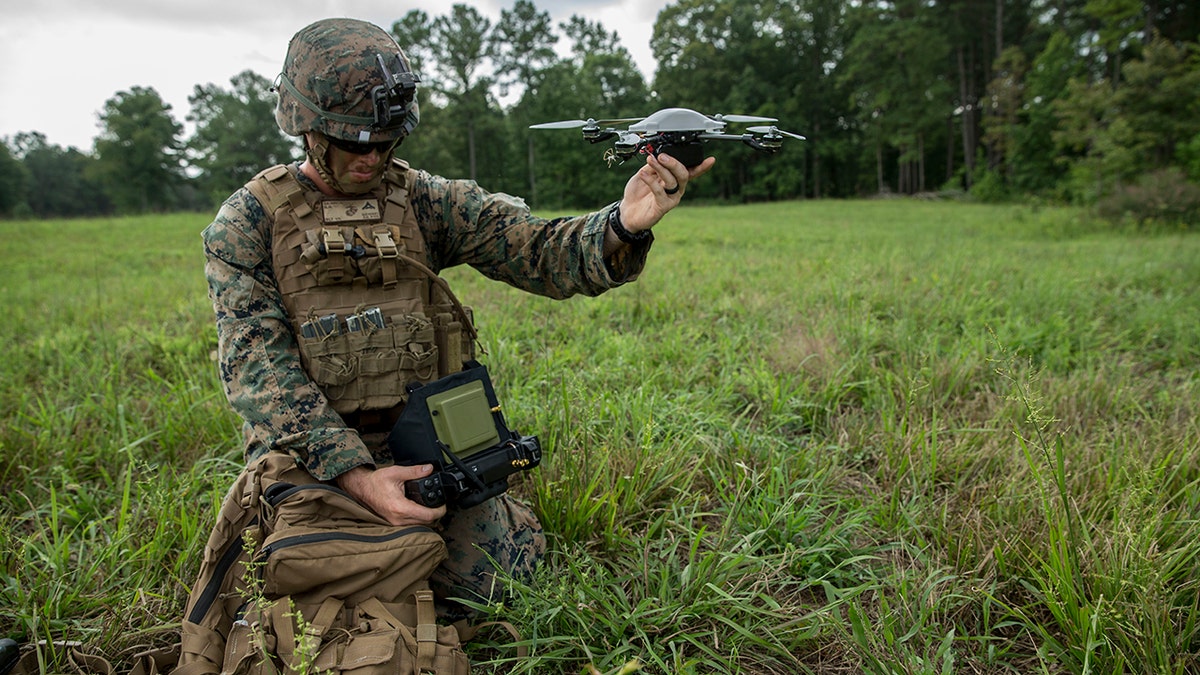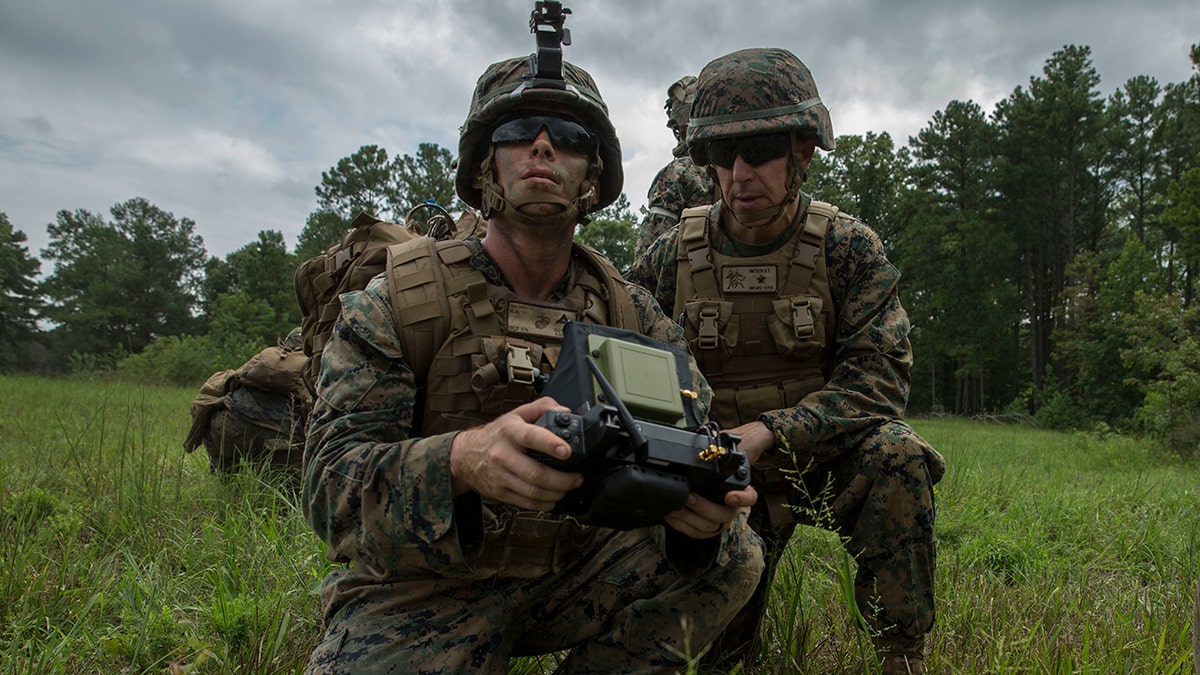
U.S. Marine Corps Lance Cpl. Ryan Skinner, assistant patrol leader, with Company Bravo, 1st Battalion, 6th Marine Regiment prepares to fly the Mark-2 Instant Eye during the Infantry Platoon Battle Course as part of a Deployment for Training (DFT) on Fort Pickett, VA., August 15, 2017. The Instant Eye is a small unmanned aerial system used to be deployed at the squad level for quick and local surveillance and reconnaissance. (U.S. Marine Corps photo by Lance Cpl. Michaela R. Gregory) (Public Domain)
In a policy memo issued quietly in late May, the Department of Defense prohibited the U.S Marine Corps from continuing to purchase and use commercial off-the-shelf drones, known at COTS, after cybersecurity vulnerabilities were exposed.
“The DoD Inspector General found that the DoD has not implemented an adequate process to assess cybersecurity risks associated with using COTS Unmanned Aerial Systems,” the memo, signed by Deputy Secretary of Defense Patrick Shanahan, states.
The Corps had already issued around 600 of the small “Instant Eye” quadcopters, with 200 more on the way, as part of its “Quads for Squads” program aimed at bringing greater situational awareness for troops on the ground. Commandant of the Marine Corps Gen. Robert Neller announced last year that the intention was to equip every infantry unit with quadcopters or similar technological devices to assist in the execution of missions.
The hand-held aircraft is adorned with rotary wings, allowing it to navigate compact spaces such as walls or buildings, and is able to take off and land at 90-degree angles – unlike many other unnamed aerial vehicles (UAVs) which require physical exertion or a runway.

The Instant Eye is a small unmanned aerial system used to be deployed at the squad level for quick and local surveillance and reconnaissance. (U.S. Marine Corps photo by Lance Cpl. Michaela R. Gregory)
“We can send this thing ahead and it can look for us,” Cpl. Isaac Brown, an intelligence specialist with Task Force Southwest, said last year after undergoing the Instant Eye training with some 300 other Marines scheduled to deploy to Afghanistan.
'I GAVE THE US TRUCKS AND AMMUNITION TO AL QAEDA': THE CHAOTIC US EFFORT TO ARM SYRIAN REBELS
'HUNTING ISIS' HIGHLIGHTS AMERICAN 'VOLUNTEERS' WHO FOUGHT TERROR GROUP
The Marine Corps stressed that the aircraft would “greatly diminish the need to send Marines into possibly hostile areas without knowing key factors beforehand, such as the number of enemy troops or equipment.”
However, the memo demanded an immediate grounding of the drones “until the DoD identities and fields a solution to mitigate known cybersecurity risks.”
The Corps has since announced an intention to submit a waiver seeking an exemption.
The widespread and controversial use of COTS by both state and non-state actors on the global battlefield has grown significantly in recent years, with UAVs deemed cost effective and critical in not only taking out adversaries with bombs and missiles or deploying tear gas, but in tactical suveillance and reconnaissance.









































